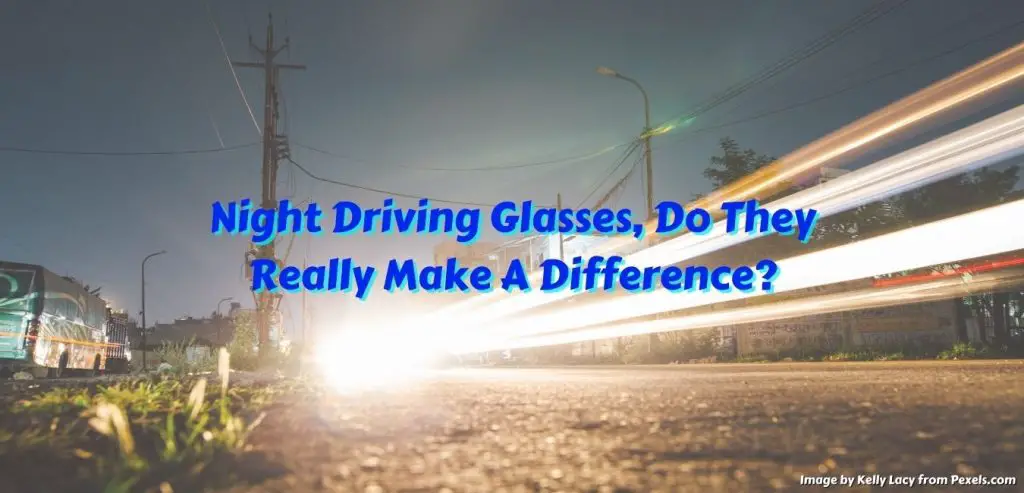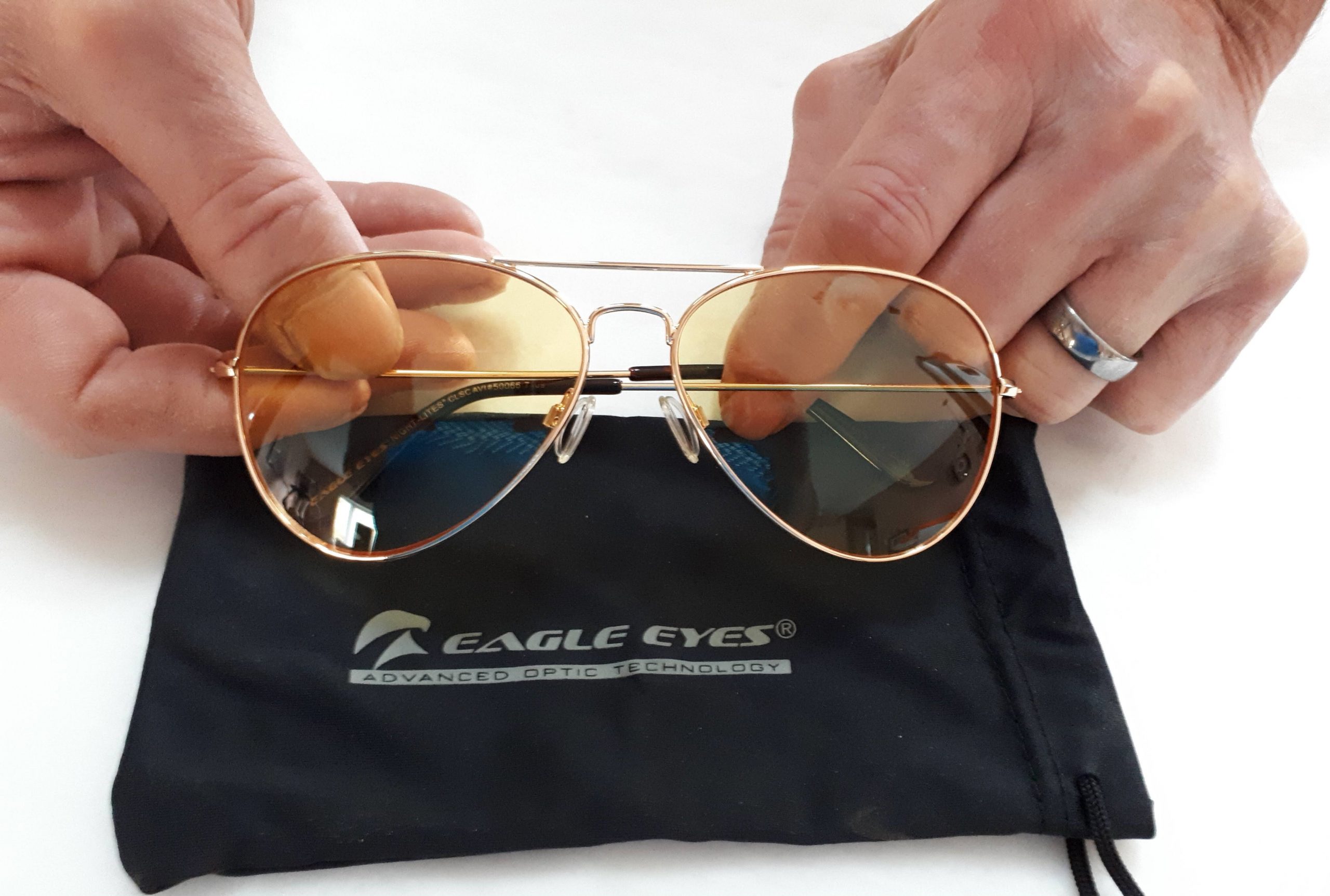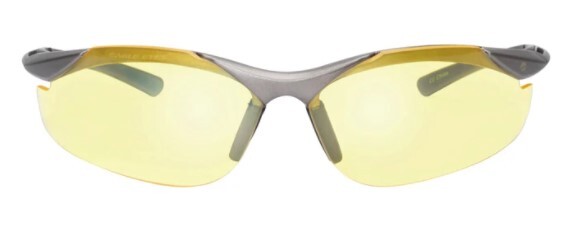Even with 20/20 vision, I find traveling in the dark more annoying than back in my younger days. It sucks to get old and I wanted to find out the pros and cons of night driving glasses. Would they really make a difference?
As a general rule, quality night driving glasses reduce glare, halos and eyestrain. They're made specifically for evening / dusk driving and make it easier for your eyes to adjust in poor light situations.
This post contains affiliate links. We are reader supported. As an Amazon Associate and Eagle Eyes affiliate, any qualifying purchases you make through these links may earn us a small commission, at no extra cost to you.
According to Car RC, many long-haul trucking companies encourage their drivers to these yellow lenses. When you consider as much as 70% of their driving is done during the dark, this is a strong testimony to their effectiveness.
One of the most common complaints is the brightness of modern headlights. While they provide better visibility, often they're blinding to oncoming traffic.
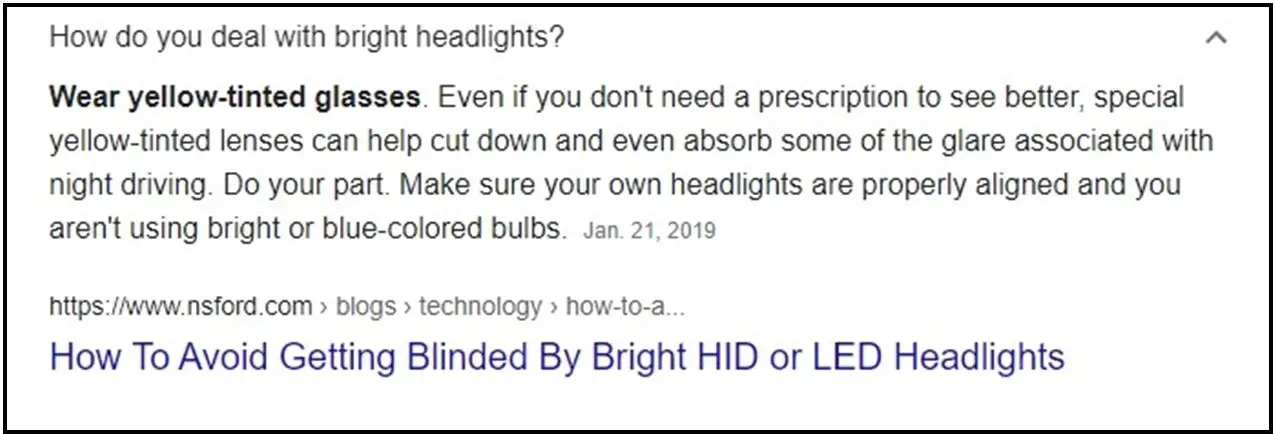
What Are Night Driving Glasses?
Night driving glasses, typically, are tinted yellow to amber with anti-reflective properties. They’re designed to enhance vision in poorly lit conditions. The better ones, also, filter bright and harmful light thereby reducing glare and associated eyestrain.
Way back when, yellow lenses were first introduced for hunters to better see birds in the sky. Particularly on cloudy and overcast days, they increased brightness, contrast and sharpness. It wasn’t long before pilots, also, began wearing them.
Yellow lenses naturally improve contrast while filtering out harmful blue light. In certain daytime conditions they actually improve vision. It was also found they were beneficial for driving in the dark. We’ve come a long way since those days!
Millions of dollars of research and development have gone into refining and perfecting this technology. As we determined in our post are cheap sunglasses worth it, there are major differences between quality made products and those cheapies.
The higher-quality products are designed to protect your eyes, reduce eyestrain and enhance vision. When polarized, they also block UV rays.
Many eye-care professionals still recommend using quality night vision specs. When it comes to my eyesight, I want the best!
The Pros and Cons of Night Driving Glasses
You would think this should be fairly cut and dried, wouldn’t you? They either help or they don’t. If it were only that easy!
There seems to be a great deal of controversy and debate over their effectiveness. In the end, it really comes down to your personal choice and whether you believe they will work or help.
The Pros
The Cons
As mentioned above, the pros and cons of night driving glasses are somewhat controversial. Some people swear by them. Others, not so much and view them more of a hindrance than helpful.
Who Should Wear Night Vision Glasses?
Wouldn’t it be nice if we all had the vision of a cat when it's dark?
Humans don’t see as well in the dark. In fact, we only see a portion of what we would normally observe in daylight. In fact, traffic deaths occur 3X more frequently than during daylight hours. This is despite that only 20% of our driving in darkness.
Almost a third (32%) of drivers report poor night vision. Unfortunately, many of them still need to drive in dusk or dark conditions.
So, who should consider getting a pair?
Why Age Is a Factor
As much as we all hate to admit it, we’re all getting older. As we age, there are physiological changes happening throughout our body.
When discussing eyesight, we seldom notice it until one day we can’t read that small print. And no matter how far you hold the paper or book away, it still doesn’t help!
Ordinarily, the average 50-year-old is going to need twice as much light as a 30-year-old to see effectively in the dark. So, naturally, traveling after dark becomes more of a challenge. And just to add insult to injury, our peripheral vision also declines.
Presbyopia is the medical term for the natural decline in visual sharpness as we get older. In some situations, this can deteriorate into nyctalopia or night blindness.
Other factors can include cataracts, macular degeneration or even a vitamin A deficiency.
Our Modern Digital Life
As convenient as all our electronic devices are, they wreak havoc on our eyes. We weren’t built to sit in front of a computer screen, TV or tablet and focus on something up close for 6-8+ hours.
These devices emit blue light which can cause eyelid twitching, eye strain, fatigue and even headaches. To address this, my wife’s glasses have blue light filters helping to block these emissions.
Why Is It Hard to See / Drive in The Dark?
Besides the fact our vision changes as we age, driving conditions have also changed over the years. There’re way more vehicles on the road, more ambient sources of light and the headlights are brighter than ever.
In short, all these make it more difficult to see and concentrate on driving.
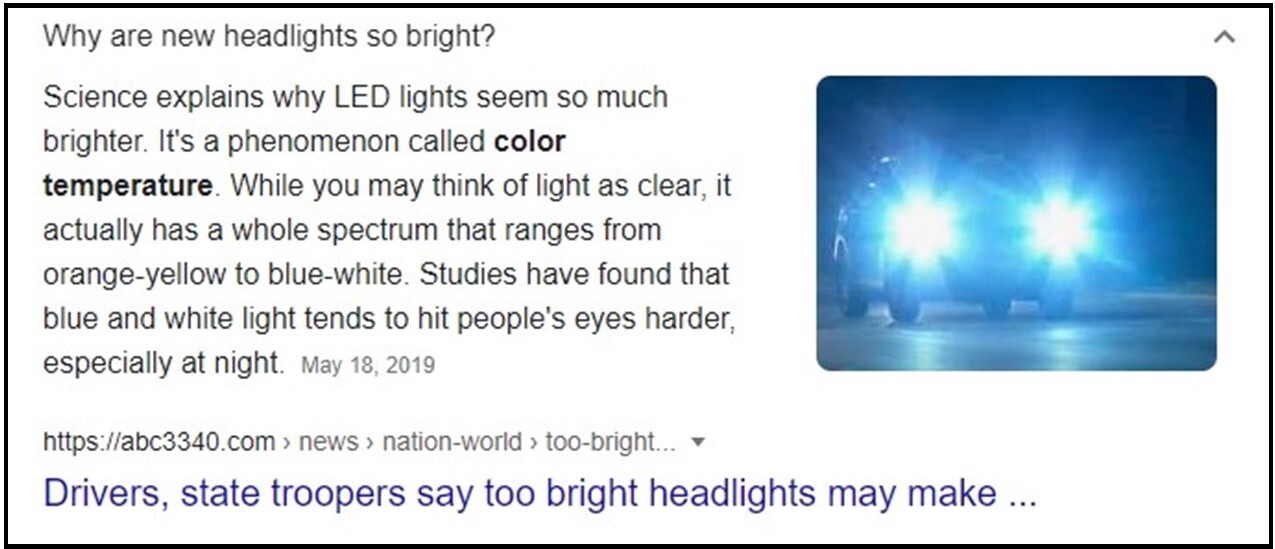
In addition, our reaction times are slower. Coupled with the fact it becomes more difficult to gauge distance. All this translates into not seeing that pothole or deer leaping out from nowhere in time.
It can take up to 20 minutes for our eyes to fully adjust to dark conditions. The challenge is when they need to adjust between bright lights and darkness.
For example, when you’re driving down the highway you might be the only one on the road. So, your vision is used to the blackness of the evening.
When you see headlights or streetlights, your eyes have to quickly adjust. This could cause a momentary feeling of “being blind”. That being said, city driving also poses problems. In some respects, there’s too much light bombarding our eyes.
Unlike natural light, our eyes can be overwhelmed and miss things. I know on a couple of occasions I’ve been caught off guard by a traffic light.
Other Tips for Improving Night Vision
Yellow glasses with anti-reflective coating are one of the best ways to improve vision in the dark / dusk. Some other tips that will help improve your night vision as well as glasses are:
Vitamins and Supplements
There are several vitamins and supplements which promote eye health, including:
Why I Bought Eagle Eyes Night Driving Glasses
Some women are into jewelry, purses or shoes. My wife loves her sunglasses and owns at least a half dozen pairs of Eagle Eyes.
As a child, she was near-sighted wearing thick prescription lenses. After corrective eye surgery, she became far more conscious of protecting her vision.
She has owned, at some point, almost every brand of sunglasses out there! She determined Eagle Eyes are amongst the highest quality of manufacturers and, consistently, less than half the price of the other big-name brands.
As much as I love and respect her, I confess I was somewhat doubtful when she decided to purchase the Eagle Eyes Aviator Night-Lite® driving glasses. At least until I tried them on!
To my astonishment, they made everything brighter and the clarity was remarkable. This was especially true with highway driving and trying to keep an eye out for wildlife.
Another thing I noticed was the difference they made when road conditions were rainy or snow covered. The best part, no more squinting at oncoming traffic. That’s why I always have a pair in the vehicle. For me, it really does make a difference!
Why Eagle Eyes?
In addition to our personal satisfaction and delight, the Eagle Eyes Night-Lite® glasses have a 4.1 customer satisfaction on Amazon. Vision Center ranked them in 2nd place, although I personally prefer Eagle Eyes and all they stand for.
Other reasons to consider Eagle Eyes include:
This post contains affiliate links. We are reader supported. As an Amazon Associate and Eagle Eyes affiliate, any qualifying purchases you make through these links may earn us a small commission, at no extra cost to you.
Check pricing and availability on Eagle Eyes website.
Closing Thoughts on Pros and Cons of Night Driving Glasses
As we get older, our reduced night vision can become problematic and limit driving after dark. Many older adults actually avoid or minimize traveling after dark. Unfortunately, sometimes it’s unavoidable.
Some folks may need to regularly drive and are unaware of their diminished vision. After all, it sort of does sneak up on all of us! Our vision is paramount to driving safely.
Learning that pilots and long-haul truckers use this technology gave me a whole new perspective. Even so, I was skeptical that a mere pair of glasses would actually improve my sight.
Not only was I impressed, I now keep a pair of Eagle Eyes Night-Lite® glasses in our vehicle. Even when it’s overcast or rainy, I find they make a real difference.
In addition, I’ve also become more diligent in keeping our headlights and windshield clean, plus the other tips mentioned. Healthy eyesight and the best vision possible may very well benefit you as well as loved ones.

